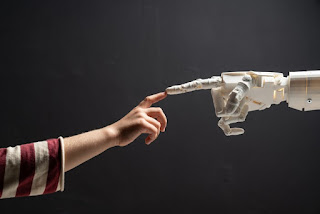Humans and all living creatures will absolutely die. But then, humans developed technology and medicine to at least be able to prolong life, so that they live longer.
If the human life span continues to lengthen, could we become immortal one day? The answer may depend on your opinion of what it means to be immortal.
"I don't think that when people even ask about immortality, the question is really addressing the true meaning of immortality, unless they believe in something lasting like the existence of a spirit or soul," said Susan Schneider, a philosopher and founding director of the Center for the Future. Mind at Florida Atlantic University, quoted from Live Science.
"If someone, say, increases the ability of their brain and body to live very long, they still won't be able to live until the universe ends," he continued.
Scientists of course predict the universe will one day end, thus immediately dampening the mystery about human potential immortality. Some scientists have speculated on the theory that living things could survive the death of the universe, as science journalist John Horgan reports for Scientific American. However, it is still impossible for any human being alive today to experience the death of the universe.
An example of an eternally youthful being
To live longer, humans try to stop the body from aging. A group of species may have solved this problem. So, the idea of delaying and even stopping aging is not far-fetched.
Hydra is one such example. These tiny invertebrates like jellyfish have extraordinary anti-aging abilities. These creatures are mostly composed of stem cells that are constantly dividing to make new cells, as their old cells are discarded. The constant influx of new cells allows the hydra to rejuvenate itself and stay young.
"They don't appear to age, so they are potentially immortal," said Daniel Martínez, a biology professor at Pomona College in Claremont, California, who found Hydra hardly aged.
Hydra showed that animals don't have to grow old, but that doesn't mean humans can emulate their rejuvenating habits. At 10 millimeters long, the hydra is small and has no organs.
"That's impossible for humans, because our bodies are so complex," says Martínez.
Although Martínez personally doesn't want to live forever, according to him humans are already capable of some form of immortality.
"I think humans are immortal in another form. Poets for example, for me they are immortal because they are still with us after all these years and they still influence us. So I think people are eternal through the 'legacy' they leave behind," he said.
Humans may be able to live beyond their biological limits with future technological advances involving nanotechnology. This is the manipulation of materials on the nanoscale, less than 100 nanometers.
Machines this small can travel in the blood and possibly prevent aging by repairing the damage that cells suffer over time. Nanotech can also cure certain diseases, including some types of cancer, by removing cancer cells from the body, according to the University of Melbourne in Australia.
Preventing the human body from aging is still not enough to achieve immortality. For example hydras. Even though the hydra showed no signs of aging, the creature still died. They are eaten by predators, such as fish, and perish if their environment changes too much, such as if their pond freezes over in winter.
Humans may not encounter many predators, but we are prone to fatal accidents and to extreme environmental events, such as those exacerbated by climate change.
Long life technology
As technology advances, futurists anticipate two important milestones. The first is the singularity, where we will design artificial intelligence (AI) that is smart enough to redesign itself, and this technology will get smarter until it can be far superior to our own intelligence.
The second milestone is virtual immortality, in which we will be able to scan our brains and transfer ourselves to non-biological media such as computers.
Once the human mind is on a computer and can be uploaded to the internet, we don't have to worry about the human body being wiped out. Moving the human mind out of the body would be a significant step towards immortality. But according to Schneider, there is a catch.
"I don't agree it's going to achieve immortality for humans. I think it's just doubling you in a double digital version," he said.
Schneider, who is also the author of 'Artificial You: AI and the Future of Your Mind' describes a thought experiment in which the brain survives or does not in the uploading process. If the brain survives, the digital copy cannot 'become the person' because it is still alive.
A digital copy also can't be 'that someone' if its brain doesn't survive the upload process. Even if it worked, the brain copy could only be a digital twin.
According to Schneider, a better way to extreme longevity, while preserving humanity, is through biological enhancements compatible with the survival of the human brain. Another, more controversial method is via a brain chip.
"There has been a lot of talk about the gradual replacement of parts of the brain with chips. So, in the end, a person becomes like an artificial intelligence," said Schneider.
In other words, slowly transitioning into a cyborg and thinking in chips rather than neurons. After all, the human body has an expiration date, regardless of how it is enhanced. Are humans still humans without their bodies?
"To me, it's not a matter of whether you're technically a human or not. The real issue is are you the same self as a person?" he said.
Still, Schneider is keen to observe the development of potential improvements in brain and body function in the future. "I want to see science and technology cure disease, make us smarter. I want to see people have options to increase their brain capacity. I just want them to understand what is at stake," he concluded.


